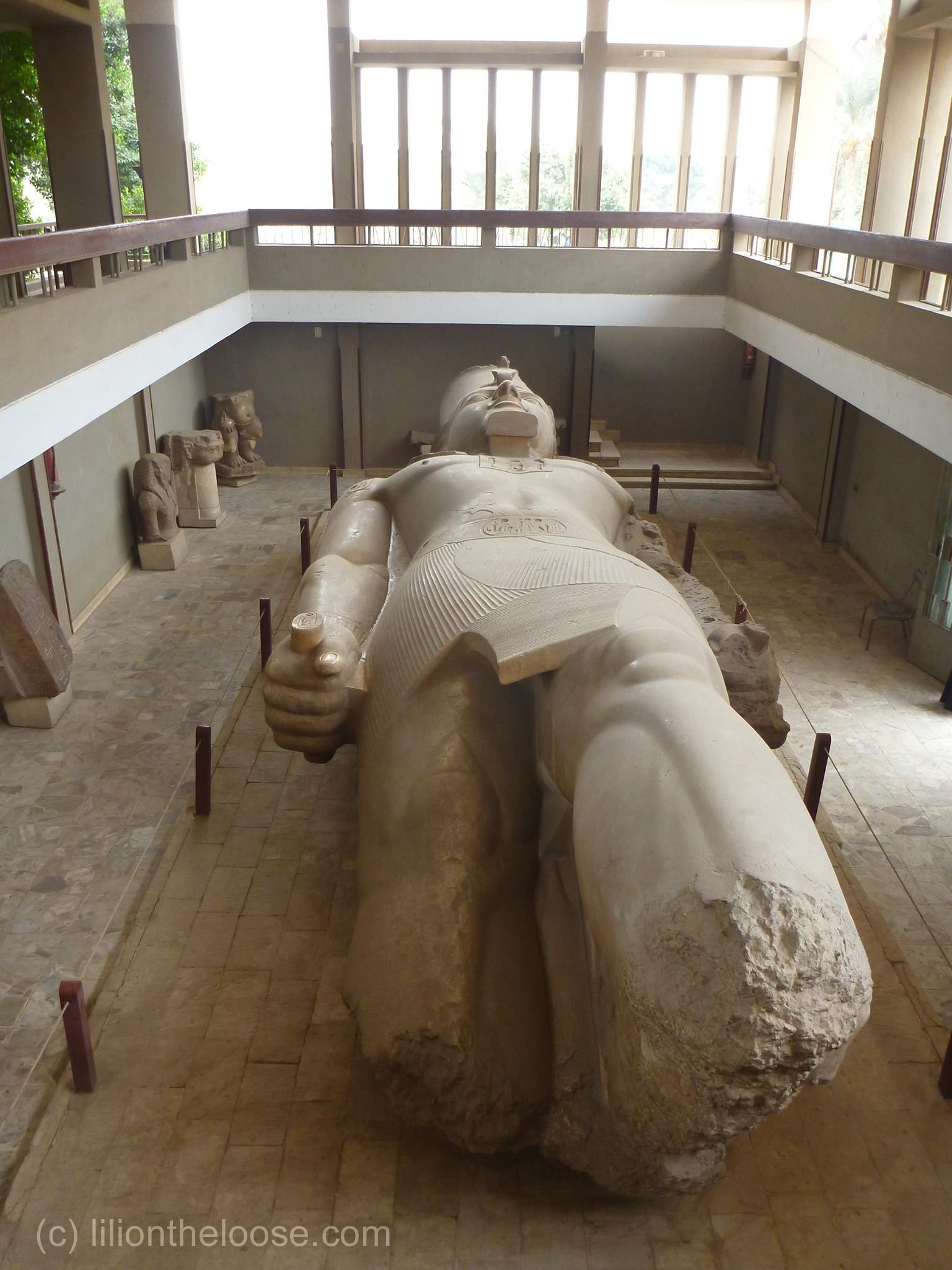
I had the opportunity to see the Colossus of Ramses II at the Memphis museum a few years ago. Tourism was way down in Egypt, and I was the only person in the viewing room (and one of 3 people in the entire open air museum). Memphis is not on most people’s tourist track since its out of the way. But I really enjoyed looking at the details of this statue, thinking how it was carved out of a single block of red granite. If you really like statues or ancient Egyptian history, than I really recommend a visit.
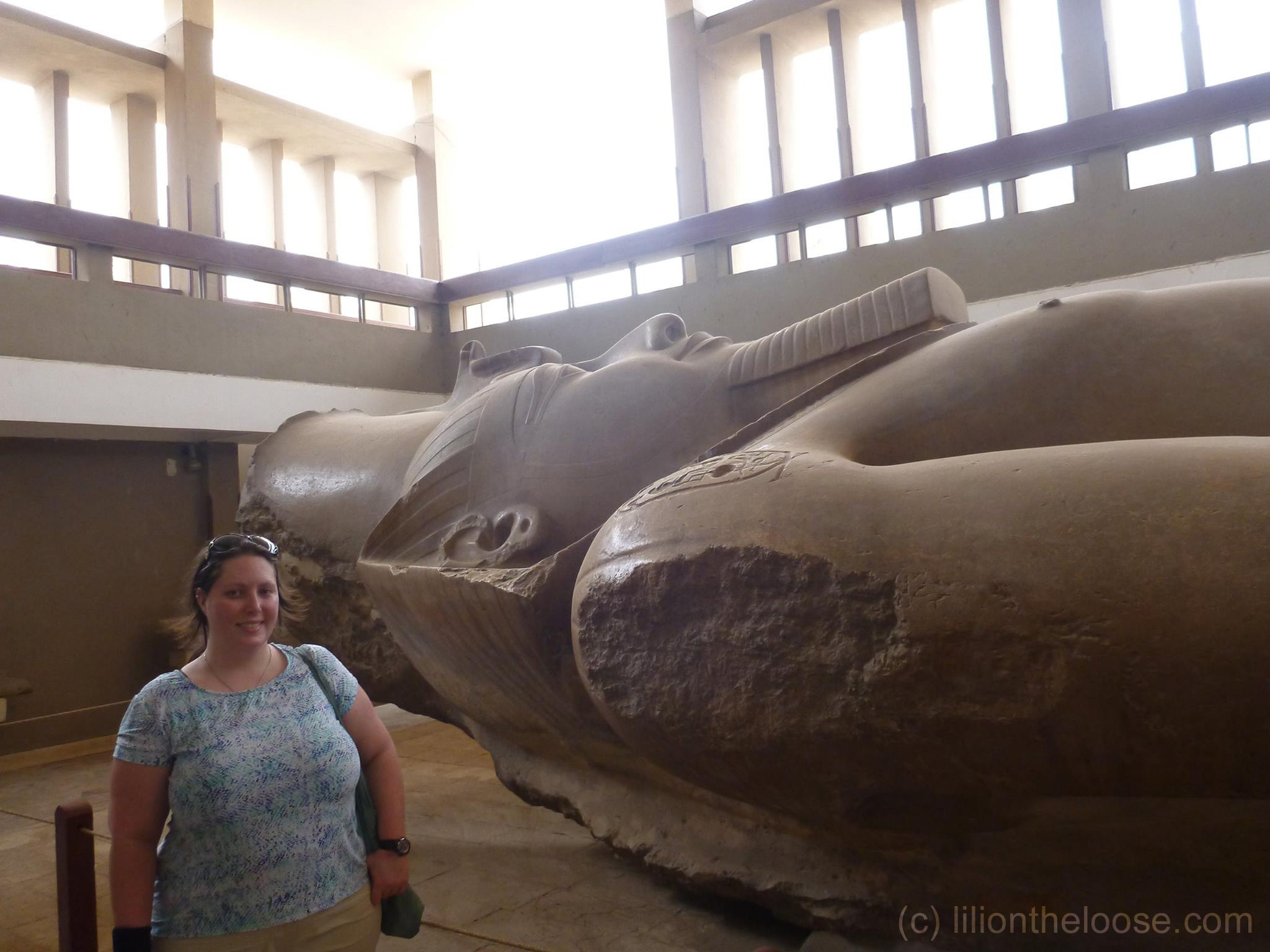
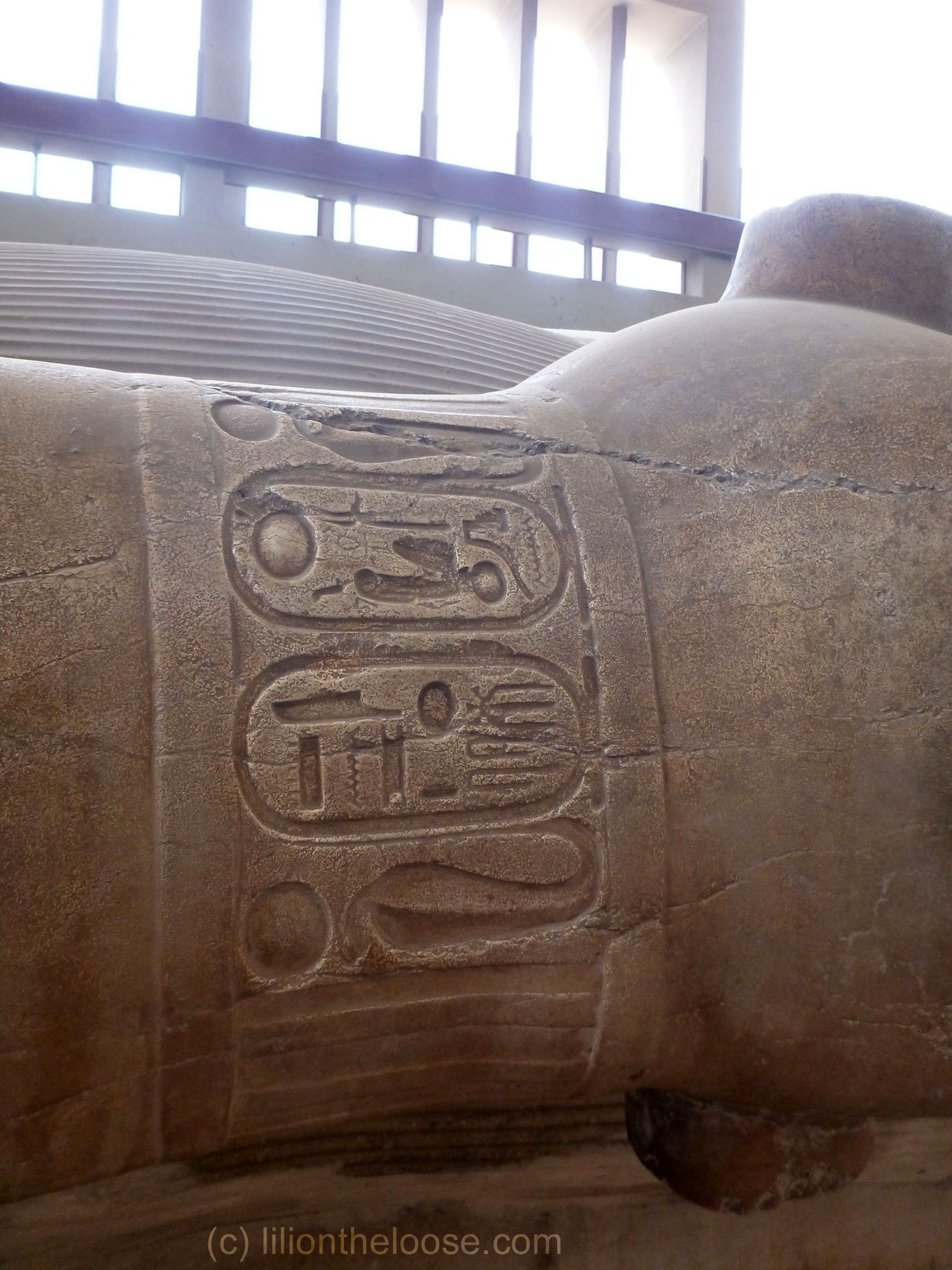
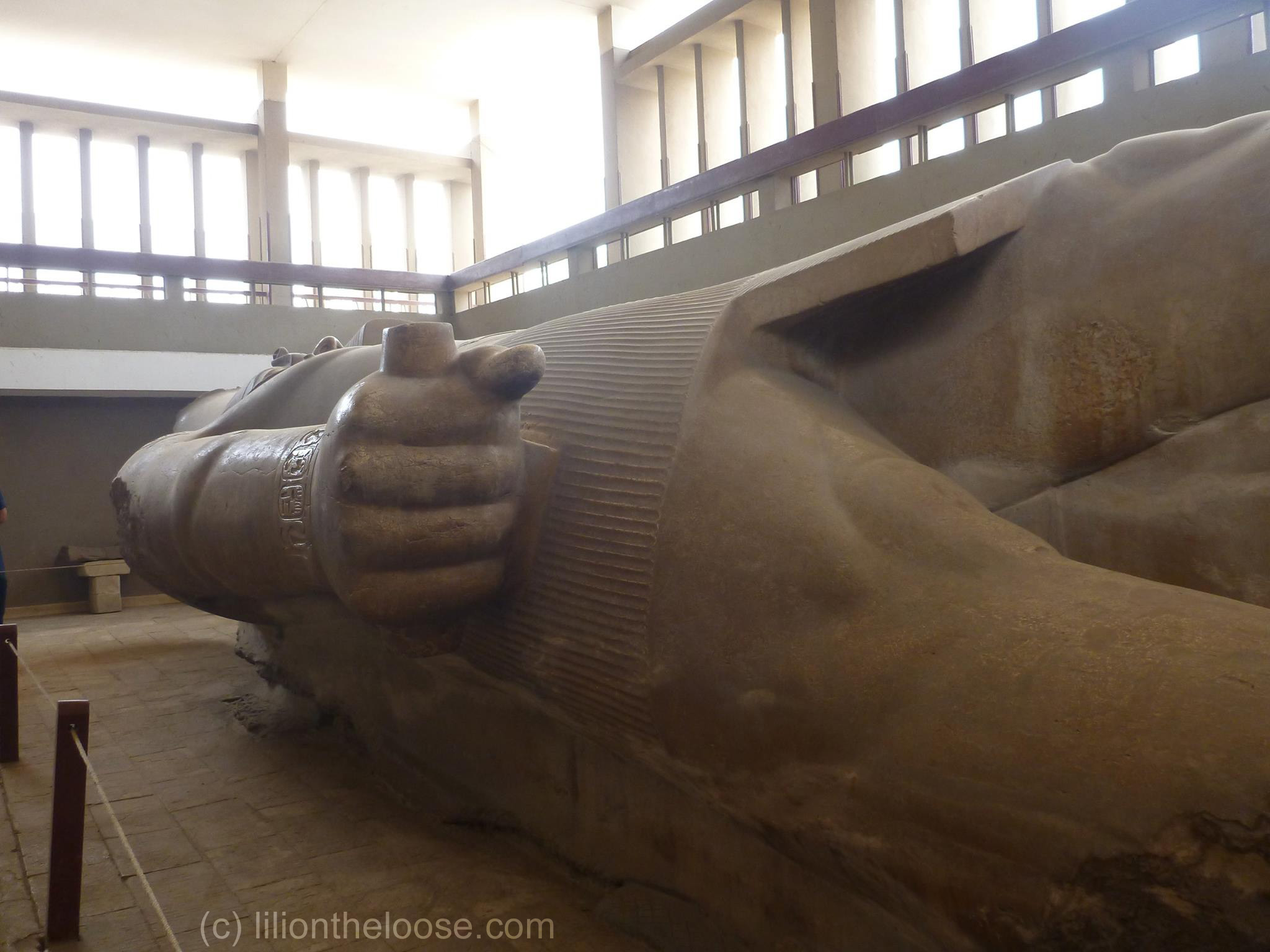
Seeing the statue reminded me of the two poems called “Ozymandias”, which was based on a smaller Ramses II statue found now in the British Museum.
The first was by Percy Shelly goes like this:
I met a traveller from an antique land
Who said: “Two vast and trunkless legs of stone
Stand in the desert. Near them, on the sand,
Half sunk, a shattered visage lies, whose frown,
And wrinkled lip, and sneer of cold command,
Tell that its sculptor well those passions read
Which yet survive, stamped on these lifeless things,
The hand that mocked them and the heart that fed:
And on the pedestal these words appear:
‘My name is Ozymandias, king of kings:
Look on my works, ye Mighty, and despair!’
Nothing beside remains. Round the decay
Of that colossal wreck, boundless and bare
The lone and level sands stretch far away.”
This poem speaks of an angry and mighty king, now lost to history.
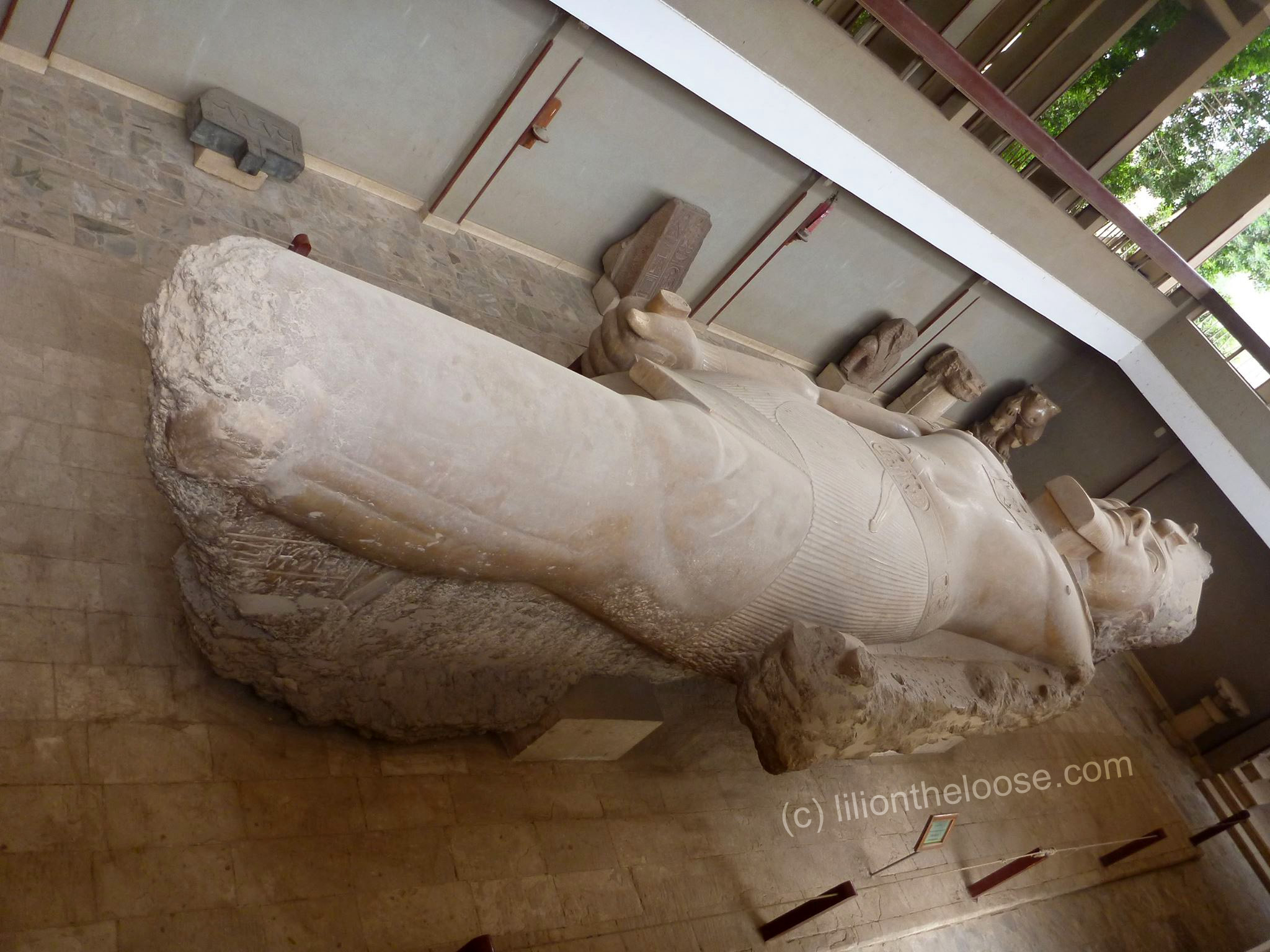
The other version of the poem by Horace Smith goes like this:
In Egypt’s sandy silence, all alone,
Stands a gigantic Leg, which far off throws
The only shadow that the Desert knows:—
“I am great OZYMANDIAS,” saith the stone,
“The King of Kings; this mighty City shows
“The wonders of my hand.”— The City’s gone,—
Nought but the Leg remaining to disclose
The site of this forgotten Babylon.
We wonder,—and some Hunter may express
Wonder like ours, when thro’ the wilderness
Where London stood, holding the Wolf in chace,
He meets some fragment huge, and stops to guess
What powerful but unrecorded race
Once dwelt in that annihilated place.
This poem dwells also on a lost civilization, but more in wonder of what was before, and if history will repeat itself with London one day.
In either poem, you can picture the discovery of these massive statues and the riddles they posed. I for one am glad we are uncovering more of the mysteries of ancient Egypt.
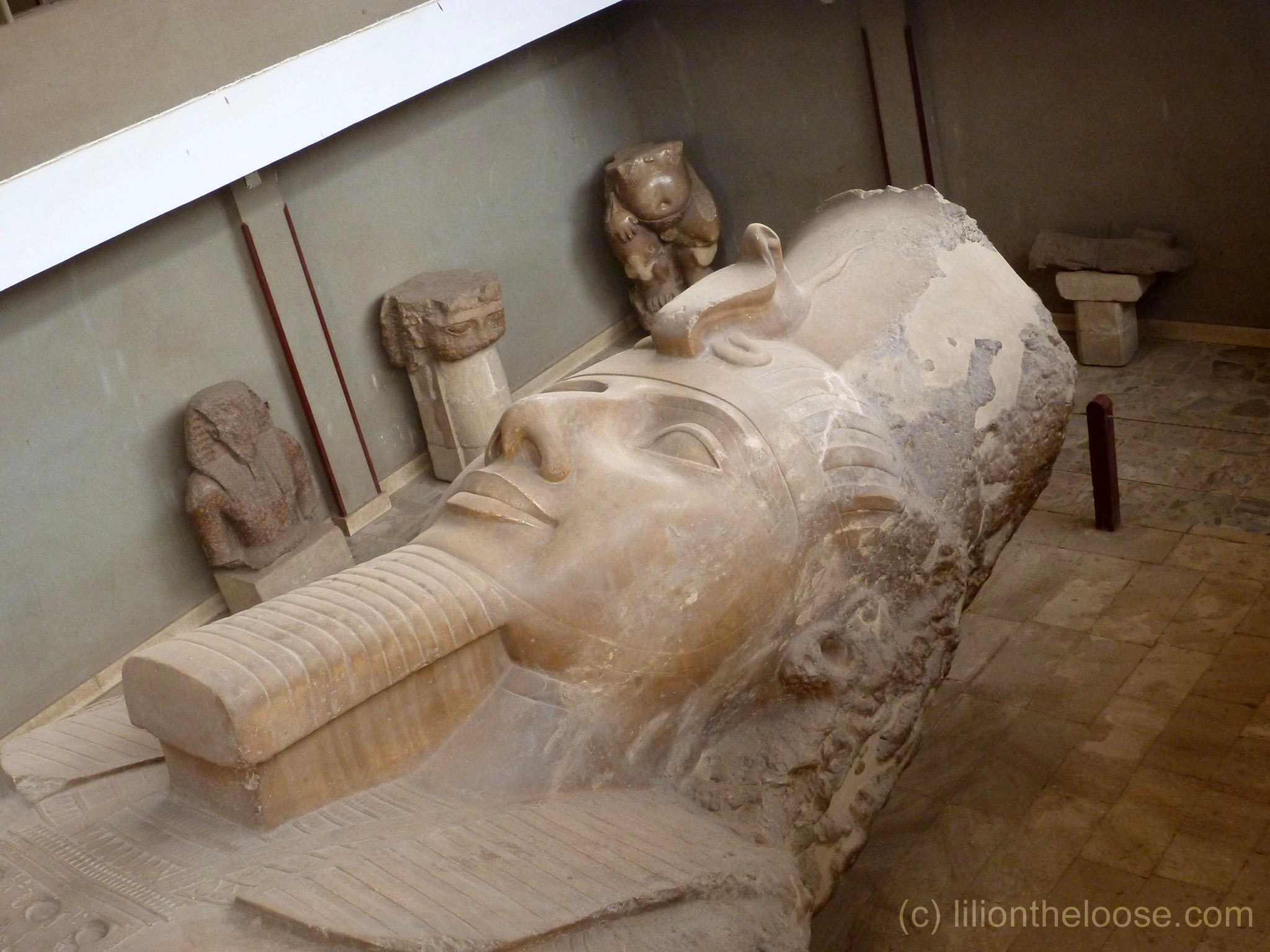
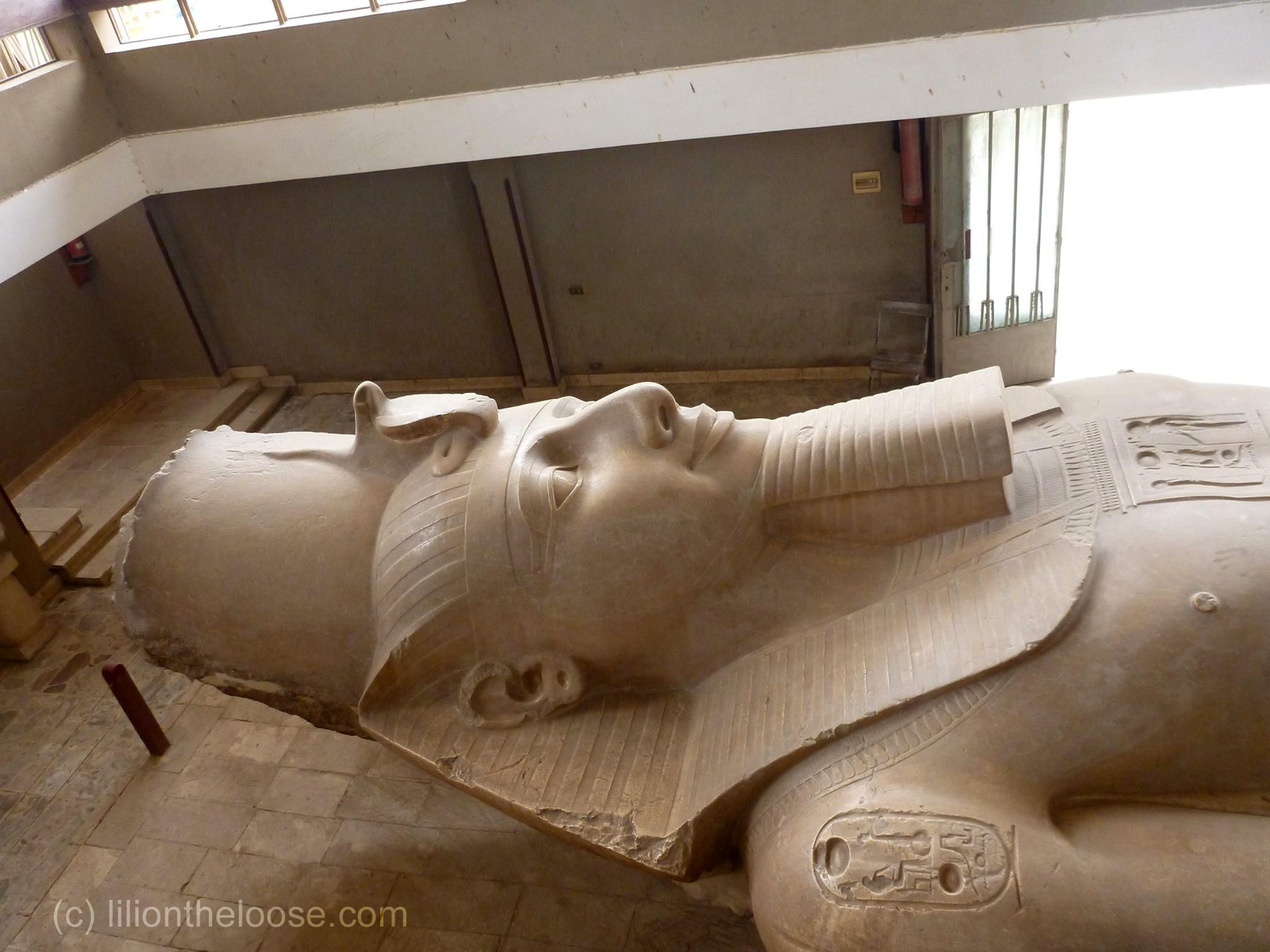
Museum Monday is an every other week series about museum news, objects, and reviews.

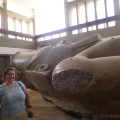
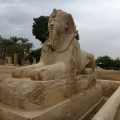
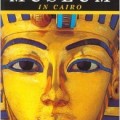
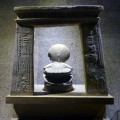
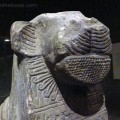
Leave a Reply